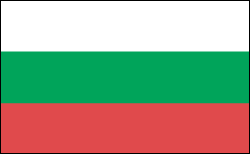Bulgaria News & Current Events


Former Wrestler and Bodyguard Elected Prime Minister
During general elections in July 2009, the centre-right GERB party led by Boyko Borisov prevailed, defeating incumbent Sergei Stanishev, who had failed to crack down on corruption and organized crime during his four years in office. The burly Borisov became prime minister and promised to crack down on corruption and revive Bulgaria's weak economy, which suffered during the global financial crisis.
Rosen Plevneliev, Bulgaria's former construction minister, won the second round of the presidential election in October 2011. He represents the party Citizens for the European Development of Bulgaria.
Borisov Resigns after Protests Erupt
In February 2013, protests were held across Bulgaria. Citizens protested corruption, poor standards of living, and rising energy costs. Two days after the protests began, Borisov resigned as prime minister. His government followed. Borisov's time served as prime minister had been riddled with allegations of corruption, including money laundering and ties to organized crime. He was also accused of racism, xenophobia, and threatening journalists.
After Borisov resigned, Marin Raykov was appointed as interim prime minister. Raykov assumed office on March 12, 2013, and also took up the post of minister of foreign affairs. After early legislative elections held on May 12, 2013, proved inconclusive, the Bulgarian parliament narrowly voted in Plamen Oresharski, a former finance minister who was not party-affiliated, as prime minister. Oresharski was backed by the Socialist Party and a majority ethnic Turkish party, the Movement for Rights and Freedoms.
Only one month after the May snap elections, the new Bulgarian government faced serious popular discontent, with nearly constant mass protests in Sofia and other large cities, calling for an end to the current government. The political turmoil has caused President Plevneliev to call for another round of early elections, a move that must be initiated by parliament.
2014 Banking Crisis Causes Fallout, Oresharski Resigns
In 2014, Bulgaria experienced its worst banking crisis since the 1990s. The crisis came after two years of political instability, months of protests over corruption, stalled economic growth, and damaging floods. In June, Standard & Poor's gave the country a credit rating downgrade to just one notch above junk. Also during the summer of 2014, Bulgaria's fourth largest lender, Corporate Commercial Bank, was shutdown pending a full audit ordered by the central bank.
Just a year after the election, Prime Minister Plamen Oresharski resigned his cabinet in July 2014. Law professor Georgi Bliznashki was named interim prime minster until the next election. A former Socialist party member, Bliznashki was kicked out of the party when he publicly supported an anti-government Sofia University student occupation earlier in 2014.
See also Encyclopedia: Bulgaria .
U.S. State Dept. Country Notes: Bulgaria
National Statistical Institute www.nsi.bg/ .







